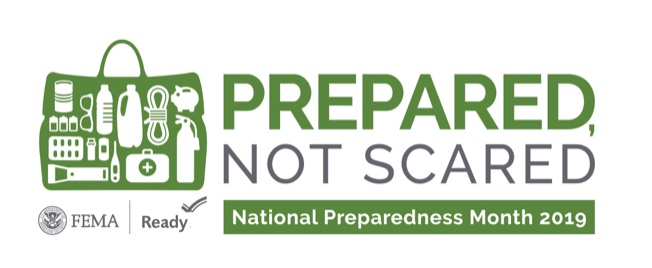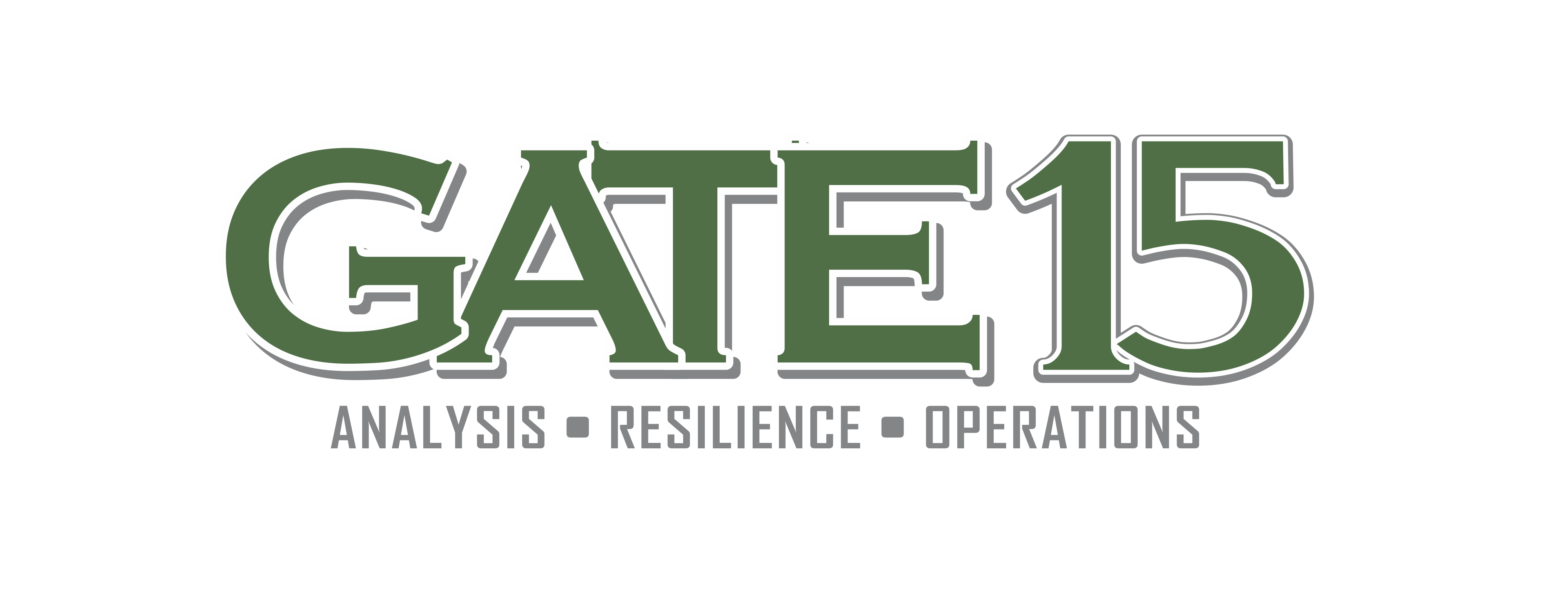By Mayya Saab

National Preparedness Month is recognized each September to promote family and community disaster as well as emergency planning now and throughout the year. September was chosen as National Preparedness Month as the tragedies of September 11, 2001 highlighted, to the nation, the importance of being prepared. As such, since September 11, 2001, the United States Government has encouraged all citizens to make their own survival preparations. Further, this month was chosen because the peak of the Atlantic hurricane season falls in mid-September. “Prepared, Not Scared “is the 2019 theme of National Preparedness Month.

I work for a company whose mission is to help organizations Understand the Threat, Assess the Risk and Take Action. I am not an analyst and, though I am an awe of what those information gobbling folks (like my teammates) do, by writing this blog, I hope to bring a different perspective on being prepared. During my professional career, my focus has been to organize people and projects – and preparedness is a project!
Do you remember Y2K? I do. For those younger than I, you can read a bit about Y2K here. We were told that catastrophe will strike at midnight on December 31, 1999. ATMs would stop working, credit card transactions would not process, there would be no running water, electricity and on on… We were told to prepare ourselves for the worst and hope for the best (the best meaning that programmers would be able to find and fix all the code that was going to cause this catastrophic chain of events.) My family heeded the call and prepare we did! We got cash, we bought a generator, stockpiled gas, food and water. Essentially, we prepared for potential prolonged disruption in basic services. Well, my family, and the rest of the world, are still here!
That whole experience taught me a lot though. It did teach me to be “perpetually prepared” – well before the tragic events of 9/11 and the declaration of National Preparedness Month. Here is how I am prepared:
- I keep cash around the house
- I have a water supply to last my family for about two weeks (on ration)
- I have enough non-perishable food for about two weeks (on ration)
- We have a crank radio as well as a short-wave radio
- We have batteries
- We have flashlights
- We have firewood
- We keep boxes of matches in a safe place
- We keep a supply of candles in storage
- We designated a safe room
- We have spare mattresses, pillows and LOTs of blankets in our safe room
- We have, toilet paper, buckets and shovels – no need for detail here!
- We have designated a meeting point away from our house in case we have to evacuate and don’t have a way to communicate
That is the modus operandi for us. The water, food, batteries and wood are replenished, and the “older” supply is used on a rotating basis – that is, if 5 cans of SpaghettiOs will expire in a month, we will use those up, for general consumption, but if the cereal bars are good for another 6 months, we will wait to consume and replenish those until that time. (Tip: the non-perishables are items that my family will eat on a regular basis so consuming those items as part of our regular diet is not a big deal.) In a sense, we are in a perpetual state of preparedness. While one would think that this would make one anxious it is quite the contrary because it is a relief to know that whatever happens, we are as prepared as possible!
Today, as I sip my coffee and watch the news, I see anxiety over the approaching hurricane. Dorian is a monstrous storm that is taking its time while gaining strength in the warm Atlantic Ocean. It threatens thousands of miles of coast and millions of people. Good people along the South Eastern seaboard are stocking up on supplies, getting gas and potentially evacuating. There are empty shelves at the grocery and hardware stores, long lines at the gas stations and a general aura of anxiety.
That got me thinking…how much easier would it be if everyone was perpetually prepared for the unknown? Could the empty shelves at the grocery and hardware stores be averted? Could the anxiety of all of those affected be reduced if they knew that they had two weeks’ worth of supplies at the ready? Would we, as a Nation, weather the storm better?
I think so. Therefore, wouldn’t it be better if all of us took this National Month of Preparedness to prepare once and for all and to become perpetually prepared? How much more resilient would this Nation be?


